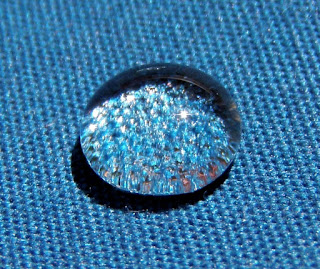Chemical, Pharma Industries Under Threat
Thursday, August 10, 2023
From Derek Lowe's excellent In the Pipeline comes the following call to action regarding proposed and ill-considered regulations for curbing the "forever chemicals" you may have been hearing about a lot lately:
Banning PTFE, PFA, and other other fluorinated polymers outright would (as the paper illustrates) cause immediate disruption in all areas of chemical research and manufacture. Consider the effects on stirring bars and blades, stopcocks, O-rings, gaskets, valves, diaphragms, membranes, shaft seals in pumps, the inner cap linings of a huge number of commercial reagents and of many types of sample vials, flow systems of many types (including the solvent lines supplying many HPLCs), sterile filters, Nafion membranes in fuel cells, PTFE-lined pipes in process plants, ball valves in water supplies ... the list goes on. And we haven't even gotten to the reagents yet!Several years ago, some articles in the left-wing press about PFAS piqued my interest because I could easily imagine something like this happening.The authors of this proposal did not really look into the chemical and biopharma industries very closely. In fact, there's a table of uses in the document itself that shows that none of these are in the "Researched in Detail" category. The "laboratory equipment" and "medicinal products" areas are [marked] as "Researched in General", while the "chemical industry" category is marked as "Not Researched In Detail". It's all very well to talk about how everyone can move to alternatives, but what are those alternatives for many of these applications, anyway? Do they exist, or are we going to have to spend years inventing, testing, and validating them? What happens to research and manufacturing in the interim? [bold added]
A water droplet rests on a piece of fabric made water-resistant through the use of fluorine-containing compounds. (Image by Brocken Inaglory, via Wikimedia Commons, license.)
(I'm no prophet: The world is full of idiots whose first impulse upon hearing any claim that something might be dangerous is to call for a government ban, regardless of any other consideration.)
Unfortunately, I ran into time and knowledge limitations, as some notes on a contemplated column indicate:
... (1) I don't know enough about DuPont's culpability (if any) or the case or any media campaign to know that this is unjust, which I suspect; and (2) I don't know enough about linking diseases to chemicals to know if the "probable linkages" in the settlement pages are bogus or not. The second installment of "The Teflon Toxin" might shed enough light on one of these to proceed, or it might offer another angle.I think this is exactly what we have, and I am glad to see that knowledgeable people in the affected industries are beginning to fight back.
... This leaves me with possibly an Erin Brockovich-like scenario. Torts seem reasonable so far, but the "Teflon Toxin" article might be trying to build up public opinion for a major looting of DuPont. So we have an AGW-like scenario here, where there may well be something going on, but with the wrong kind of government response in the offing. Perhaps ... the companies really ARE acting reasonably, but the irrational aspects of government regulation or torts are making it harder to do so.
Like fossil fuels, the chemical industry is crucial to the complex, modern economy that is keeping billions of people alive and comfortable. Banning these chemicals outright could well be as foolhardy and genocical as immediately ceasing the use of fossil fuels: And it's the kind of fundamental disruption that only a misguided government could wreak and from which it could take a generation or more to recover from, if such a recovery were even possible.
-- CAV


No comments:
Post a Comment